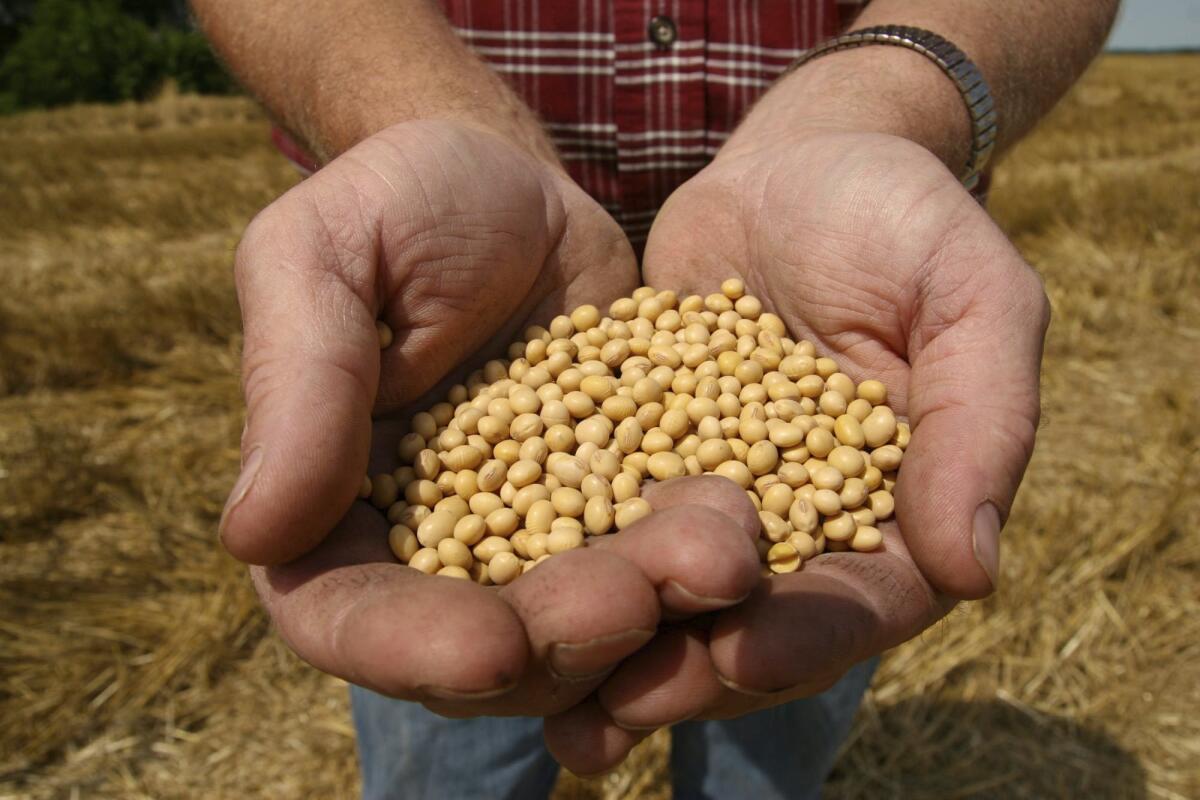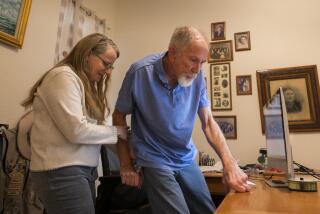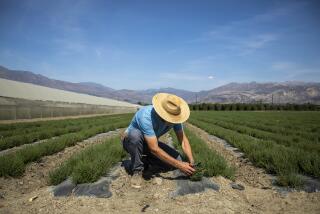Editorial: Sowing the seeds of an illogical crop ban

Last year’s half-baked and unsuccessful proposal to ban genetically engineered crops in Los Angeles has not improved with time. Yet here it is before the City Council again, complete with wild statements about bioengineered food, chock full of inconsistent logic and, just like last year, rendered virtually meaningless because there are no such crops in the city and no plans to grow them.
The motion, brought to the council Tuesday by Councilmen Paul Koretz and Mitch O’Farrell, cites concern by consumers that genetically engineered food might be unsafe to eat, a position that is not backed by years of scientific study. The councilmen point out in support of their proposal that 52% of county voters favored a failed 2012 statewide proposition that would have required that labels be put on foods with bioengineered ingredients — ignoring the fact that labeling a product and banning the process that created it are entirely different things.
The councilmen also complain about the herbicides used on bioengineered crops, and those complaints are partly justified. But linking that to a ban makes for foolish policy. It is true that plants have often been engineered to resist herbicides, which are then sprayed on the plants intensively and repeatedly over time. That, in turn, has given rise to herbicide-resistant weeds, which can be very difficult to eradicate in fields of conventionally grown crops. But the problem is not the genetically engineered plants, it is the heavy application of the herbicides. Conventional lawns are also heavily treated with herbicides and other chemicals that aren’t good for the environment. The proper response is a regulation on pesticide and herbicide use, not a ban on the crops.
And not all genetic engineering of crops is designed to build resistance to pesticides. Scientists have, for instance, developed a form of rice that contains significant amounts of vitamin A, an innovation that could prevent blindness and death for millions of people in Asia and Africa. Scientists are at work on oranges they hope will resist citrus greening, a disease that threatens to wipe out orange groves throughout the U.S. What if future projects included drought-tolerant crops that could survive the kind of prolonged dry spell California has been experiencing? Why would we want to ban such products without any scientific indication that they’re unhealthy or unsafe?
That’s not to say all bioengineered plants are keepers. Herbicide-resistant turf grass is undergoing product testing. But because grasses spread easily, there should be concern that the engineered products could take over neighbors’ lawns and become omnipresent pests even in the wilderness areas that surround the city.
In other words, making sound policy requires lawmakers to rise above irrational fears and easy generalizations and to become informed about science.
Follow the Opinion section on Twitter @latimesopinion
More to Read
A cure for the common opinion
Get thought-provoking perspectives with our weekly newsletter.
You may occasionally receive promotional content from the Los Angeles Times.






